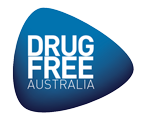In its submission last Friday to the Queensland Police Inquiry into decriminalising the use of all illicit drugs, Drug Free Australia noted that 99% of 25,000 Australians surveyed in 2019 did not approve the regular use of heroin, ice and speed, with 97% not approving of the use of cocaine and 96% of ecstasy, yet these are the very drugs the Queensland Police want to decriminalise.
Drug Free Australia went on to demonstrate that wherever the use of these same drugs has ever been decriminalised, increased drug use and havoc has followed. Portugal 'compassionately' decriminalised all drugs in 2001 and by 2017 their drug use had increased 59%, use by high school up 60%, and opiate deaths up 61% by 2018. Australia introduced Tough on Drugs in 1998 and by 2007 had DECREASED the use of the same drugs tracked by Portugal by 42%. Drug Free Australia has pointed out that the strong Australian disapproval of illicit drugs is proof they do not want increasing drug use - which Queensland's Police will inevitably bring, with all the added criminal networks that must supply them.
California decriminalised the use of all drugs in 2015. So many people are fleeing California and shifting to other US states, that California will lose a representational seat
https://www.latimes.com/politics/story/2021-04-26/census-data-redistricting-delay
in Congress as a result, such has been the exodus. Amongst the main reasons cited is the homelessness < caused by unchecked drug use. Oregon decriminalised in 2021 and saw a 216% https://www.thegatewaypundit.com/2022/06/overdose-deaths-oregon-skyrocket-one-year-decriminalizing-hard-drugs/
increase in opiate deaths within 10 months – testimony to the bonanza for criminal drug suppliers and dealers these deaths represent (increased opiate deaths percentage-wise track the same https://espace.library.uq.edu.au/view/UQ:36895> percentage-wise rises in opiate use).
A 2019 article https://www.forbes.com/sites/michaelshellenberger/2019/09/12/why-california-keeps-making-homelessness-worse/?sh=5949dce45a61
in the centrist Forbes magazine well-describes the connection between California’s liberalised drug policies and the homelessness which is driving residents away. From the article:
QUOTE
“I’ve rarely seen a normal able-bodied able-minded non-drug-using homeless person who’s just down on their luck,” L.A. street doctor Susan Partovi told me. “Of the thousands of people I’ve worked with over 16 years, it’s like one or two people a year. And they’re the easiest to deal with.” Rev. Bales agrees. “One hundred percent of the people on the streets are mentally impacted, on drugs, or both,” he said.
Bales says people have little incentive to do treatment (i.e. rehab – our clarification) when there is no threat of jail time. . . . Things went further in this direction with the passage of Proposition 47 in 2014, which decriminalized hard drugs and released nonviolent offenders from prison without providing after-care support. “Our guests went from 12 - 17% addicted to 50% or higher,” Bales says. “Policymakers need to understand that if you allow the use, you also allow the sales, and if you allow the sales, then you allow the big guys to break your legs when you owe them money,” says Bales."
UNQUOTE
Drug Free Australia is urging Queensland Parliamentarians to make decisions in favour of their voters instead of their uninformed Police. Removing the possibility of a criminal conviction is precisely what makes Australian drug courts and MERIT programs a success in getting users off to rehab and off their drugs, rather than continuing to harm themselves, their children, partners, parents, friends and workmates. Liberal drug policies helped create California's problems. Don't let it happen to Queensland.
Gary Christian
Research Director
0422 163 141
Drug Free Australia
